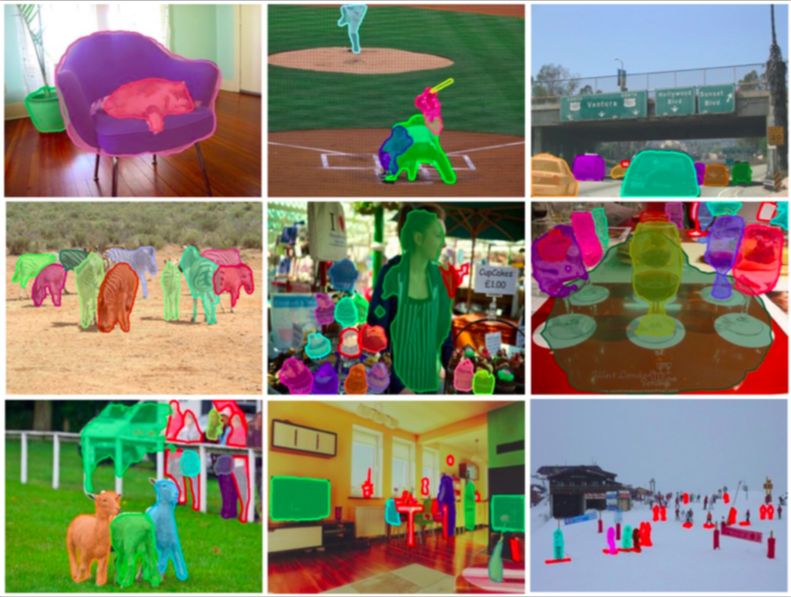Facebook AI can recognise objects in photos
Predictive learning is also helping a Facebook bot master the game Go


Facebook AI can now recognise images in photos, the social network said as it announced new milestones reached in its artificial intelligence research division (FAIR).
Part of Facebook's research involves an advanced object recognition feature which is able to segment and distinguish between different objects in a photograph.
Compared to previous stages of development, Facebook claims its object detection software is 30 per cent faster and uses 10 times less training data.
The research team has also been working on natural language understanding with Memory Networks (MemNets), designed to read and answer questions about short texts.
MemNets technology will be integrated with the new image recognition software, allowing users to ask about the contents of a photo.
In an official Facebook blog post, chief technology officer Mike Schroepfer said: "Our research efforts along with our work to develop radical new approaches to connectivity and our work to develop immersive new VR technologies are a long-term endeavor.
"But if we can get them right we will be able to build systems that are smarter and more useful, enable developers to create immersive new experiences, and make it possible to connect everyone in the world."
Get the ITPro daily newsletter
Sign up today and you will receive a free copy of our Future Focus 2025 report - the leading guidance on AI, cybersecurity and other IT challenges as per 700+ senior executives
Alongside these developments, researchers have created a system capable of predictive learning, able to watch a series of visual tests before predicting the outcome of blocks being stacked on top of each other (falling or not falling) correctly 90 per cent of the time.
FAIR has also been working towards thwarting the game, Go, which AI players have so far failed to master, with a bot that is already at the level of a "very strong human player". The bot relies on a pattern-matching system built by Facebook's computer vision team.
Earlier this year, Google launched its Deep Dream image recognition tool, originally created to research artificial neural networks and provide new insight into image classification and speech recognition, but later released for public use. People were then asked to submit the often bizarre results produced by the software.
Caroline has been writing about technology for more than a decade, switching between consumer smart home news and reviews and in-depth B2B industry coverage. In addition to her work for IT Pro and Cloud Pro, she has contributed to a number of titles including Expert Reviews, TechRadar, The Week and many more. She is currently the smart home editor across Future Publishing's homes titles.
You can get in touch with Caroline via email at caroline.preece@futurenet.com.
-
 Cleo attack victim list grows as Hertz confirms customer data stolen
Cleo attack victim list grows as Hertz confirms customer data stolenNews Hertz has confirmed it suffered a data breach as a result of the Cleo zero-day vulnerability in late 2024, with the car rental giant warning that customer data was stolen.
By Ross Kelly
-
 Lateral moves in tech: Why leaders should support employee mobility
Lateral moves in tech: Why leaders should support employee mobilityIn-depth Encouraging staff to switch roles can have long-term benefits for skills in the tech sector
By Keri Allan